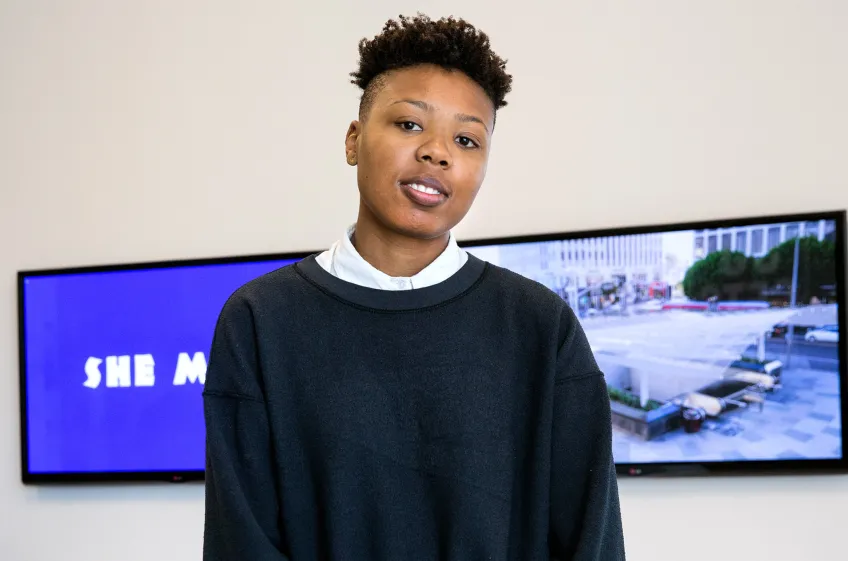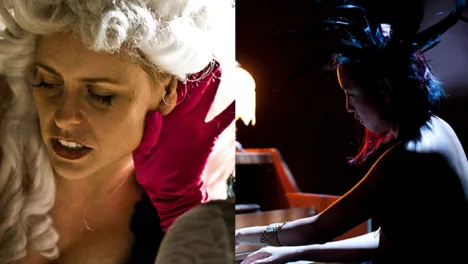
Tip of Her Tongue: Martine Syms "Misdirected Kiss"
Overview
Martine Syms is a conceptual entrepreneur based in Los Angeles who uses publishing, video, and performance to look at the making and reception of meaning in contemporary America. Misdirected Kiss is a performative lecture that tells a story about language, movement, and performance as observed in black female entertainers. Inspired by the curriculum of Maxine Powell, director of the in-house finishing school at Motown Records in the 1960s who thought that “class and style and refinement” would help her race become outstanding, this performance is a visual essay that traces how we construct and stage ourselves for the world. As artist Gordon Hall once said, "Politics is something you do with your body."
The title Misdirected Kiss is drawn from a set of silent films in which white men accidentally kiss their black maids instead of their white lovers. This illicit contact typically takes place in between public and private space where vision is obscured. Syms uses this as a starting point to think through the ways that everybody wants to be a black woman, but nobody wants to be a black woman. Syms states, “I'm thinking about Kim Kardashian, LaVerne Cox, Michelle Obama, and Beyoncé. But also myself, my best friend, my sister, my mother, my aunty, and my grandma."
Watch Martine Sym's The Mundane Afrofuturist Manifesto on KCET
About Tip of Her Tongue
Barbara Kruger’s Untitled (Your body is a battleground), 1989, is a stark emblem for feminist art practice—if the body is our battleground, it is through language that we fight. Inspired by Kruger's work and by similarly discursive artworks in the Broad collection, The Tip of Her Tongue program series features feminist artists in performance who work with language and embodiment. The artists in this series have intense stories to tell and experiment aggressively with the telling. The artists work with words to explore how the body's relationship to language is mediated by histories large and small. The body may both anchor and disrupt the story. It is a source of desire, grief, shame and laughter. These intimate performances explore the politics of representation—with how gender is produced in, through and as language; and how the stories we tell circulate around, move through, against and with the body.
Read More



